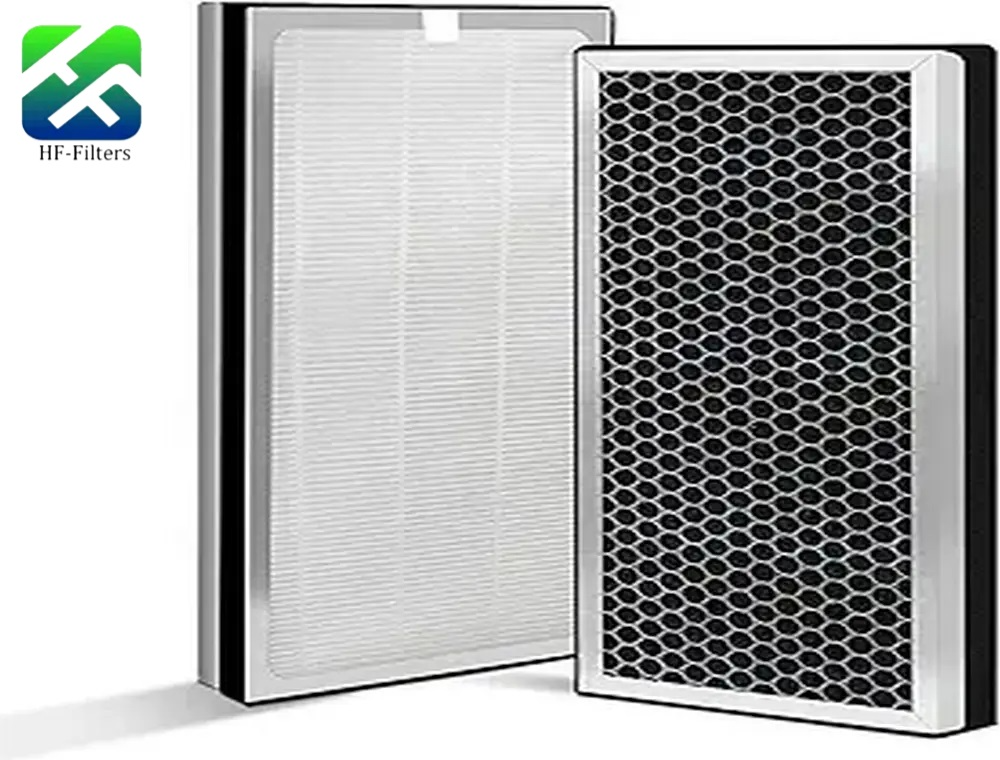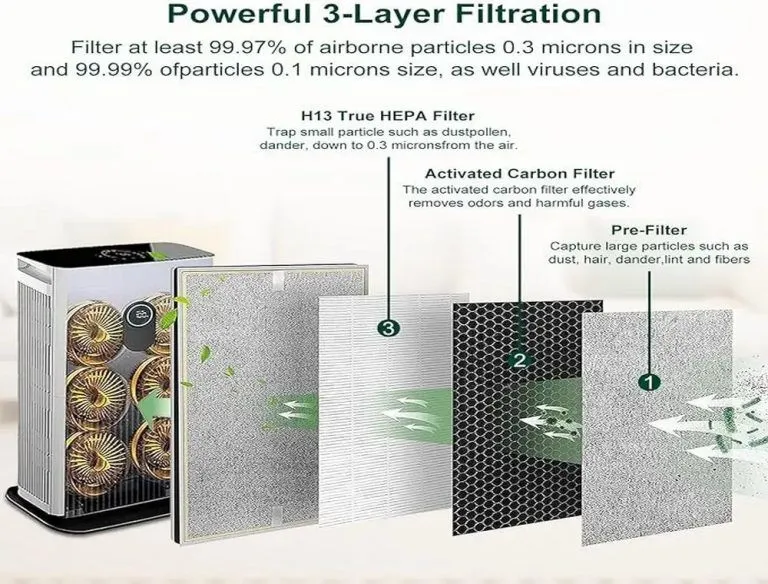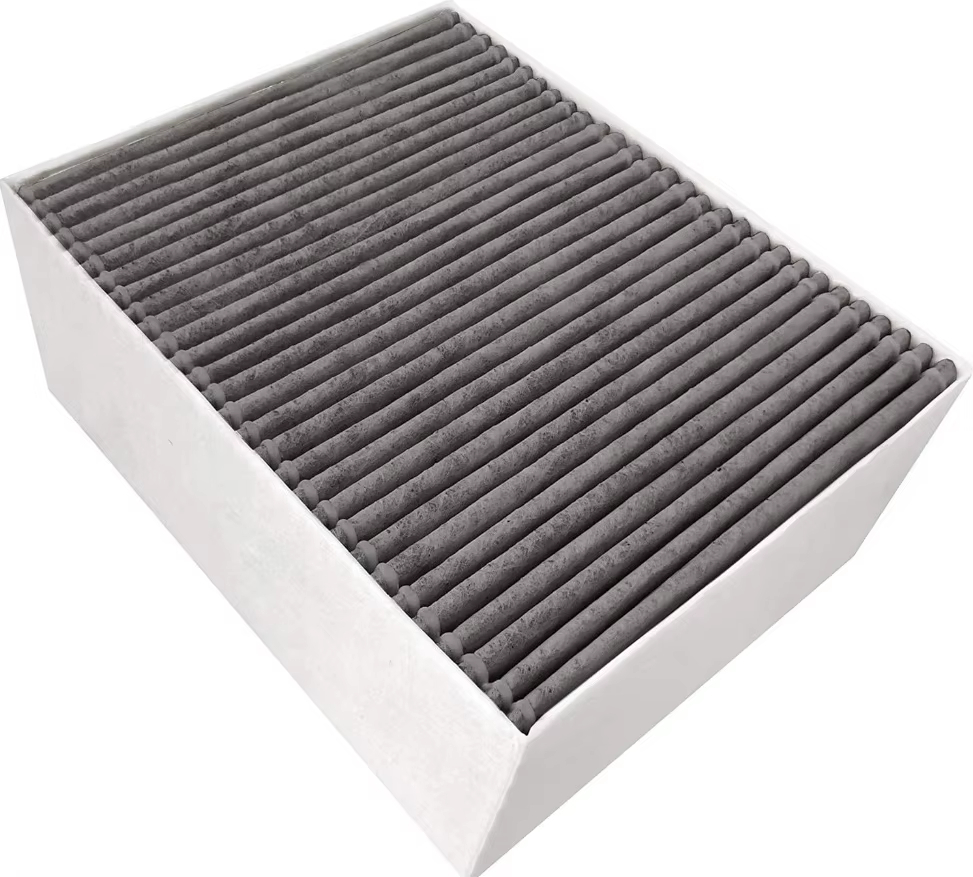Indoor air is rarely as clean as it looks. Dust, pollen, smoke, and other tiny things float around even if you can’t see them. Some of them can cause allergies, sneezing, or that heavy feeling when you wake up. Getting an air purifier should fix this, but the real question is whether the machine you buy is actually worth the money. Many buyers spend a lot but later feel the unit is not doing enough. One company that has drawn attention in global trade is Healthy Filters. Based in Shenzhen since 2016, it focuses on making filtration products for homes, offices, and even heavy industries. Its product lines cover air purifier filters, humidifier filters, vacuum filters, and more. The company holds ISO9001 quality management certification and operates advanced equipment, including a 30-cubic-meter CADR testing chamber. Customers in North America, Europe, and Southeast Asia have already placed trust in its filters. Orders are shipped quickly through a U.S. warehouse, cutting long waiting times.

What Makes an Air Purifier Worth the Investment?
If you want to know if a purifier is a good buy, look first at how well it removes dirt and odors from the air. A shiny cover or a new feature may look nice, but the real worth comes from steady performance day after day. Three things matter most here: strong particle capture, effective odor and gas control, and trusted certifications. Without them, even a stylish machine will not change your indoor air in a real way.
True HEPA Filtration as the Benchmark
A purifier without a true HEPA filter is not much better than a fan. HEPA media traps 99.97 percent of particles as small as 0.3 microns. That means it can stop pollen, fine dust, and even bacteria. The Air Purifier HEPA Filter is folded from different materials such as PP+PET, PTFE, and glass fiber. These filters come in shapes like square, round, or cylinder. Each filter normally works for eight to twelve months before it needs to be changed.

Activated Carbon for Odor and VOC Removal
Getting rid of particles is only part of the story. Kitchens produce smells, smokers leave behind smoke, and furniture can release formaldehyde. To deal with these, a purifier needs carbon. The Air Purifier Carbon Filter is designed to catch smells and gases. It can be made in honeycomb, sandwich, or flat form, filled with coconut shell or bamboo charcoal. These filters keep airflow smooth while pulling in unwanted odors.

Certifications and Global Standards
Looking at labels might feel boring, but they matter. Filters with CE, ROHS, SGS, FCC, or UL marks have gone through tests. These approvals mean the filter is safe, stable, and accepted in markets where rules are strict. When you see these marks, you know you are not buying a risky or low-grade item.
How Do Filter Quality and Lifespan Affect Value?
Even if a purifier looks great when new, its value drops if the filters wear out too fast or cost too much to change. The real test is how long the filters last and how easy they are to replace.
Long Lasting HEPA Filter Performance
Filters that collapse in a few months waste money. Well-made HEPA filters are folded to give more surface area. This lets them last longer while keeping airflow steady. A lifespan of eight to twelve months means you can plan ahead and not stress about buying too many spares.
Replaceable and Affordable Carbon Filters
Carbon filters work harder in kitchens or polluted cities. They absorb odors fast and can fill up quickly. Having replacements that are easy to buy and not overpriced keeps the purifier useful. Honeycomb carbon filters are common because they are simple to put in and perform in a steady way.
Healthy Filters OEM and Custom Solutions
Not all purifiers take the same size or type of filter. That is why custom design is useful. OEM optionslet filters be made for unique shapes or projects. This way, you are not stuck trying to fit the wrong filter into your unit.
Why Does Room Size and CADR Rating Matter?
Another key point is whether the purifier can handle the room you place it in. A measure called CADR, short for Clean Air Delivery Rate, shows how fast the machine delivers clean air. If the CADR is too low, the unit may run all day and still leave the air stale.
Matching Air Purifier to Space Coverage
A small room can work with a compact purifier. But a large office or family living room needs a machine with higher flow. Buying too small is a common mistake, leaving people unhappy even after spending money.
CADR Testing and Verified Results
CADR ratings are tested in chambers. They measure how fast a filter clears smoke, dust, and pollen. A company that runs its own 30-cubic-meter CADR testing centercan check results before sending products out. This way, you don’t have to rely only on marketing claims.
Healthy Filters 30m³ CADR Testing Center
Having a lab of this size gives steady proof of performance. It allows products to be adjusted before release. It also means you can feel more sure that the purifier will clean not just in lab setups but in daily rooms too.
What Are the Hidden Costs You Should Avoid?
The sticker price on the box is not the full story. Some purifiers turn into expensive habits once you factor in replacement filters or shipping delays.
Expensive Replacement Filters
Certain brands lock buyers into filters that cost nearly half the machine’s price. Over time, this can feel worse than buying a new unit. Knowing the cost of spares before you buy saves stress.
Lack of Availability in Global Markets
If you cannot find filters in your country, the purifier becomes a dead weight. Filters need to be available worldwide, especially for offices or businesses that need many units working at once.
Healthy Filters Warehouses and Fast Delivery
With warehouses based in the U.S., replacements can arrive quickly. Business buyers or distributors benefit from this because there is no long pause waiting for shipments to arrive across oceans.
Why Should You Trust Healthy Filters Products?
Trust does not come from ads alone. It builds through production standards, testing, and global track records.
ISO9001 Certified Manufacturing
A factory certified with ISO9001 follows a set system for quality. This helps cut defects and keeps product quality steady.
CE ROHS SGS FCC UL Safety Standards
Safety and reliability are confirmed by these marks. They reduce the chance of customs issues or angry feedback. Products with these marks are accepted in strict markets and that helps trade flow smoother.
Reputation in North America and Europe
Filters already sold across North America, Canada, and Europeprove their worth. A good reputation in several regions shows that customers with different needs still trust the performance.
What Is the Future of Air Purification Solutions?
Air purifiers are not staying the same. They are growing into smarter, greener, and more useful systems for homes and businesses.
Smart Integration and Functional Filters
Filters today can include antibacterial layers, photocatalyst coatings, or formaldehyde removal sheets. These features are not just buzzwords; they help in hospitals, labs, or places that need strict air quality.
Sustainable and Eco Friendly Materials
More producers are using recyclable non-woven fabrics. This step cuts waste while still keeping filters effective. It is part of a wider shift in how industries think about clean air and the planet.
Healthy Filters Global Distributor Network
Distributors are offered clear support, short lead times, and protection of customer data. For companies that rely on regular supply, this stable network avoids empty shelves.
FAQ
Q1: How often should you replace a HEPA filter?
A: Most HEPA filters last eight to twelve months. The timing depends on your room and usage.
Q2: What size purifier do you need for a 30 square meter room?
A: You need a CADR rating around 250 to 300 cubic meters per hour for that size.
Q3: Do carbon filters really remove formaldehyde?
A: Yes. Activated carbon adsorbs formaldehyde and other VOCs, but you must replace the filter once it is full.





